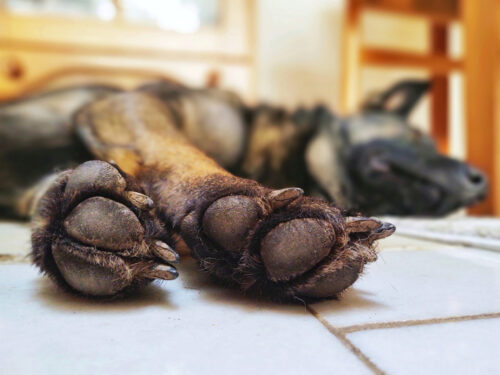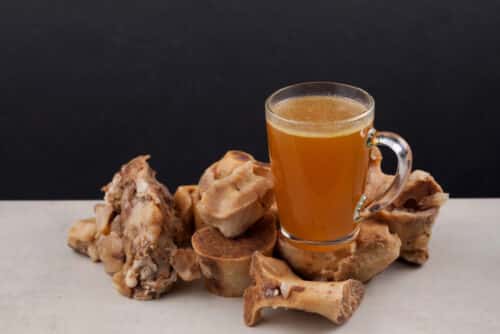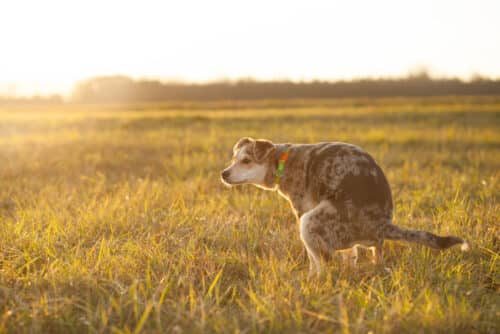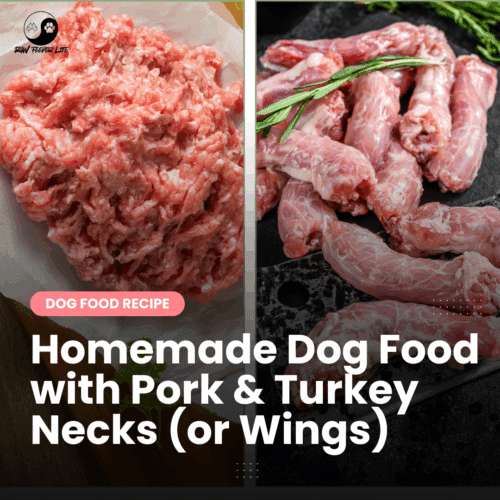Keep the Tail Wagging is supported by pet parents. I occasionally earn a commission (at no additional cost to you) when you click through an affiliate link to one of my favorite products. Thank you for your support. Read More
As a raw feeder, monitoring dog poop is a daily task. I'm looking for color, consistency, and amount. On most days, I see exactly what I expect. But, occasionally, the poop is covered in mucus that can cause concern. In this article, I will share why dog stool may be covered in mucus, the steps I take when this happens, and when it's time for me to call the vet.
Excessive Mucus on Dog Poop
It is normal for dogs to have a small amount of mucus in their feces to aid in the digestion process. When I see an excessive amount of mucus in my dog's feces, I understand this could indicate various underlying health issues or conditions.
Gastrointestinal Infections: Infections, such as bacterial or parasitic infections, can cause inflammation in the dog's digestive system, leading to increased mucus production in the stool.
Dietary Issues: Dogs may develop an intolerance or sensitivity to certain food ingredients, irritating the digestive tract and mucus production. This can result from a sudden change in diet or eating spoiled or low-quality food.
Inflammatory Bowel Disease (IBD): IBD is a chronic inflammation of the gastrointestinal tract. Dogs with IBD often produce excessive mucus in their stools, and other symptoms like diarrhea or vomiting.
Colitis: Colitis occurs when the colon becomes inflamed. Mucus in the stool is a common symptom of colitis and can be caused by infections, dietary issues, or stress.
How to Prevent Excessive Mucus on Stool
When I notice excessive mucus on my dog's stool, I know I have some work to do on their gut health and diet. The main things I do to keep my dogs' gut healthy include:
Feed a Balanced Diet: My dogs must consume a nutritionally complete diet of fresh food (raw and home-cooked). I primarily feed a raw diet I formulated for my dogs. Occasionally, I feed premade raw from a few brands my dogs do well on.
Probiotics: Species-appropriate probiotic supplements and fermented foods promote a healthy balance of bacteria in the gut while improving digestion and nutrient absorption. I alternate between several supplements that support a dog's health.
Hydration: Although a raw food diet is moisture-rich, I still ensure my dogs have access to fresh water at all times to maintain hydration, which is essential for proper digestion.
Stress Management: Stress can impact the digestive system, so minimizing stressors in a dog's environment is important. I do this by providing a calm, secure space and engaging in regular exercise and mental stimulation – daily walks, sniff walks, active and mental games, and even a car ride from time to time.
How I Treat Excessive Mucus in Stool
My dogs eat a healthy diet that includes probiotics, get plenty of fresh water, and live low-stress lives. When one has excessive mucus on their stool, it's a cause for concern, and I chose to address the issue at home before calling the veterinarian.
Diet Review / Protein Sensitivity: I look for possible sensitivities, usually from a new protein, brand, or source. The last time Apollo had excessive mucus on his stool, I had been feeding a chicken recipe. Removing this protein from his diet resolved the excessive mucus.
AnimalBiome Microbiome Testing: If a dog's gut microbiome is out of balance, this can lead to symptoms of leaky gut (vomiting, diarrhea, constipation, skin issues, and excessive mucus). An AnimalBiome at-home testing kit detects imbalances in the gut and offers actionable steps to improve a dog's gut health.
Innovative Pet Lab Leaky Gut Testing: Leaky Gut is a condition that allows harmful toxins and allergens to enter the bloodstream. Instead of diagnosing leaky gut at home, we can test the health of a dog's gut lining with a leaky gut test offered by Innovative Pet Lab.
When it's Time to Go to the Vet
If adjusting my dog's diet and boosting his gut health doesn't work, then it's time to go to the vet. If my dog shows signs of illness (listlessness, lack of appetite, pain, etc.), it's time to go to the vet.
In the past, I saw an improvement in my dog's stool within a week. If there is no change, I contact our holistic veterinarian because she understands raw feeding and the importance of the gut microbiome.






